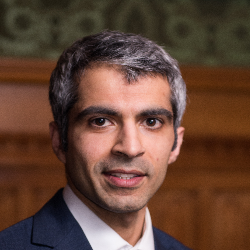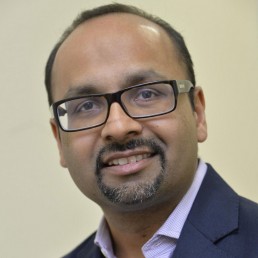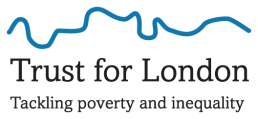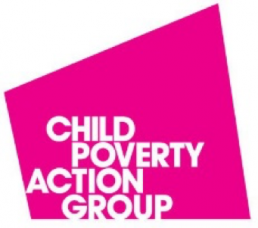“It is alarming and unacceptable that the poverty rate for children is rising and that over half of all children in poverty are living in persistent poverty. Growing up in poverty impacts not only on the day-to-day lives of children, but seriously hampers their chances of doing well at school and their job prospects and health in adulthood.
“Tackling and eliminating child poverty should be an ambition and priority for all governments. The upcoming Spending Review is the chance for the new Prime Minister to show that turning around the lives of these children matters to his Government. It will not be cheap and it will require strong leadership across government departments, capital investment in institutions that can help our most vulnerable children and targeted long term investment in family and child support. The Government can also have an immediate impact looking again at the impact of Universal Credit on those families who are already struggling.
“We know that reducing child poverty can be done, because it has been achieved before. It is time to make it a priority again.”
Anne Longfield, the Children’s Commissioner for England

“We all want to live in communities free from the grip of poverty. It is unacceptable that our new poverty measure shows that four million people have been pulled into deep levels of poverty, while seven million are trapped in a persistent struggle to make ends meet. We need our new Prime Minister to get to work immediately on a bold plan to boost living standards and support our towns and cities in building a more hopeful economic future.
“We know that low-income voters are restless to see action and are turning out at the ballot box in greater numbers. The party that brings forward policies to unlock opportunities, boost skills and invest in affordable homes to help this group will stand the best chance of earning their support.”
Helen Barnard, deputy director of policy & partnerships at the Joseph Rowntree Foundation and SMC Commissioner
“For fifteen years the Centre for Social Justice has argued that tackling poverty demands addressing its root causes: family breakdown, educational failure, worklessness, debt, and addiction. The Social Metrics Commission’s Lived Experience Indicators in particular highlight just how important these are, becoming ever more prevalent the deeper people slide into poverty. Any government serious about tackling poverty must start by tackling these indicators.”
Andy Cook, CEO, Centre for Social Justice


“This report reveals the important challenges facing the new Prime Minister go well beyond Brexit. Boris Johnson can cement his leadership by prioritising support for those in deep and persistent poverty, ensuring everyone in Britain is able to see a pathway to prosperity under his premiership.”
Deven Ghelani, Director and Founder of Policy in Practice and SMC Commissioner
“Our measure gives policymakers a different picture of who is poor, and therefore how poverty should be addressed. For example our measure shows that nearly half of people in poverty live in a family where someone is disabled. This is shocking, and has been overlooked by government in the past.”
Hetan Shah, Executive Director of the Royal Statistical Society and SMC Commissioner


“The SMC report throws new light on the nature of the poverty in the UK today – in particular, the scale of persistent and deep poverty. We know that managing on a very low income or being in persistent poverty means not only struggling to meet the most basic of daily needs but has a profound impact on future life-chances of individuals and their children. We hope that the SMC’s independent and rigorous approach will motivate policy makers across the political divide to make tackling poverty an urgent priority.”
Carey Oppenheim, SMC Commissioner
“The Commission’s report confirms the extent of child poverty in the UK. The Commission’s measure includes the additional costs families face such as childcare and those associated with disability, it examines the depth and persistence of poverty, and explores Lived Experience Indicators, all which will enable a deeper understanding of poverty and its effects on children. It is crucial we have an effective measure of child poverty so it can be better understood and urgently challenged by policy makers.”


“It’s shocking that almost half of the families in poverty have a disabled person in them. The harsh reality is that in 2019 life costs more if you’re disabled. Families with disabled children have extra costs of on average £581 a month. This means a lower standard of living and tough choices about what to go without each month. There is an urgent need for Government, policy makers and businesses to work together to support the millions of disabled people and their families who are living in poverty.”
James Taylor, Head of Policy and Campaigns at Scope
“We welcome the SMC’s latest report. It shows that the commonly held view of London as a city of prosperity does not stand up to scrutiny. The capital has the highest rates of poverty in the country, with over 1 in 4 Londoners unable to escape the trap of low wages and the high cost of living. We hope that the SMC’s data will bring this fact into sharp focus and make it easier for policymakers to tackle poverty across the country.”
Bharat Mehta CBE, Chief Executive of Trust for London


“Seeing a single child’s life blighted by poverty in modern Britain should be a scandal. For 4.6 million children to be facing poverty according to this proposed new measure – and nearly three quarters of them to be in working families – is a national shame requiring urgent action.
“The new Prime Minister must commit to an end to the ongoing benefit freeze so that families can afford to pay bills and purchase everyday essentials. The government must also provide the funding needed to deliver effective emergency financial support – including by supporting councils to deliver local welfare assistance schemes – so that where families do face difficulties they aren’t left with nowhere to turn.
“No matter what approach is taken to measuring child poverty; urgent action is needed to address the issue. We must work to prevent generations of young people from growing up and experiencing the detrimental effect poverty has on their immediate wellbeing and long term life chances.”
Dr Sam Royston, Director of Policy and Research at The Children’s Society
“No matter how you measure it, child poverty is rising and it should be an urgent priority for the new Prime Minister. Without action, it will continue to rise. This is one area where what governments do – and don’t do – makes a difference. Great progress on child poverty had been made but by cutting £40bn a year from our work-and-pensions budget through cuts and freezes to tax credits and benefits, the government has put progress into reverse.
“As it reaches more families, the two child limit will increase poverty in larger families, compounding the SMC’s findings. By reinvesting in benefits for children – including removing the poverty-producing two child limit and benefit cap, restoring and uprating child benefit and the child element in universal credit and reinstating the higher payment for the first child in universal credit – we can lift 700,000 children out of poverty and increase family income by an average of £1,000 per year. Investing in children is an important first step for a government that wants to reunite the country.”
Alison Garnham, Chief Executive of Child Poverty Action Group
